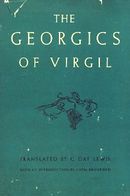From WikiIslam, the online resource on Islam
Jump to navigation
Jump to search
|
|
| Line 184: |
Line 184: |
|
| |
|
|
| |
|
| <option weight="1">{{Pictorial-Islam|1=Setting the Record Straight: The Non-Miracle of Islamic Science|2=[[File:The Miracle of Islamic Science.jpg|180px|link=Setting the Record Straight: The Non-Miracle of Islamic Science]]|3=This is a refutation of Dr K. Ajram's Setting the Record Straight: The Miracle of Islamic Science. The purpose of this analysis is to put the achievements of Golden Age Muslim scientists in the proper perspective; neither denigrating their achievements nor inflating them. All scientific and technological progress is accomplished in progression; Muslim achievements are but links in the chain. Few of the great Muslim scientific achievements stood alone, but were derived by Muslim scientists standing on the shoulders of those who came before them. This analysis also highlights the fatal flaw of the Islamic Golden Age. There were few ‘follow-up’ breakthroughs on the backs of the works of the great Muslim scientists. In effect, the Ummah allowed or encouraged these works to wither on the vine or die stillborn, even before the rise of mysticism at the expense of rational thinking, an event often attributed to al-Ghazzali around the turn of the 12th century. Indeed, it would seem orthodox Islam utterly stifles intellectual reasoning. Therefore, Islam is not the cause of scientific progress during the Golden Age. Many people would say that the Golden Age scientific progress was made in spite of Islam, not because of it. A prime example is the great philosopher-physician Ibn Sina (Avicenna) whose work is constantly referenced by Dr K. Ajram. ([[Setting the Record Straight: The Non-Miracle of Islamic Science|''read more'']])}}</option> | | <option weight="1">{{Pictorial-Islam|1=Setting the Record Straight: The Non-Miracle of Islamic Science|2=[[File:The Miracle of Islamic Science.jpg|150px|link=Setting the Record Straight: The Non-Miracle of Islamic Science]]|3=This is a refutation of Dr K. Ajram's Setting the Record Straight: The Miracle of Islamic Science. The purpose of this analysis is to put the achievements of Golden Age Muslim scientists in the proper perspective; neither denigrating their achievements nor inflating them. |
| | |
| | All scientific and technological progress is accomplished in progression; Muslim achievements are but links in the chain. Few of the great Muslim scientific achievements stood alone, but were derived by Muslim scientists standing on the shoulders of those who came before them. |
| | |
| | This analysis also highlights the fatal flaw of the Islamic Golden Age. There were few ‘follow-up’ breakthroughs on the backs of the works of the great Muslim scientists. In effect, the Ummah allowed or encouraged these works to wither on the vine or die stillborn, even before the rise of mysticism at the expense of rational thinking, an event often attributed to al-Ghazzali around the turn of the 12th century. ([[Setting the Record Straight: The Non-Miracle of Islamic Science|''read more'']])}}</option> |
|
| |
|
|
| |
|
Revision as of 22:19, 31 January 2014
Also see: Template:Pictorial-Islam
Georgics: A Miraculous Book from the Gods?
|
|

|
|
To demonstrate how easy it is to prove that any ancient poetry can be reinterpreted to reveal scientific miracles, we present to you a satiric article that 'proves' the Georgica, written by Virgil in Golden Latin in the year 28 BC, contains scientific miracles. In the very first eight words alone of the Georgics we find no less than five (there's probably many more) scientifically accurate statements of which Virgil himself (born in the first century BC) could not have had any knowledge of, due to science only confirming them many centuries later.
What divine source could have whispered all this into Virgil's ear? Virgil was a polytheist, who worshipped many different gods. Is this truly a miracle sent down from the ancient Roman gods? Let the honest reader draw his or her own conclusions. All we request is that you look upon this with an open mind. (read more)
|
|
|
